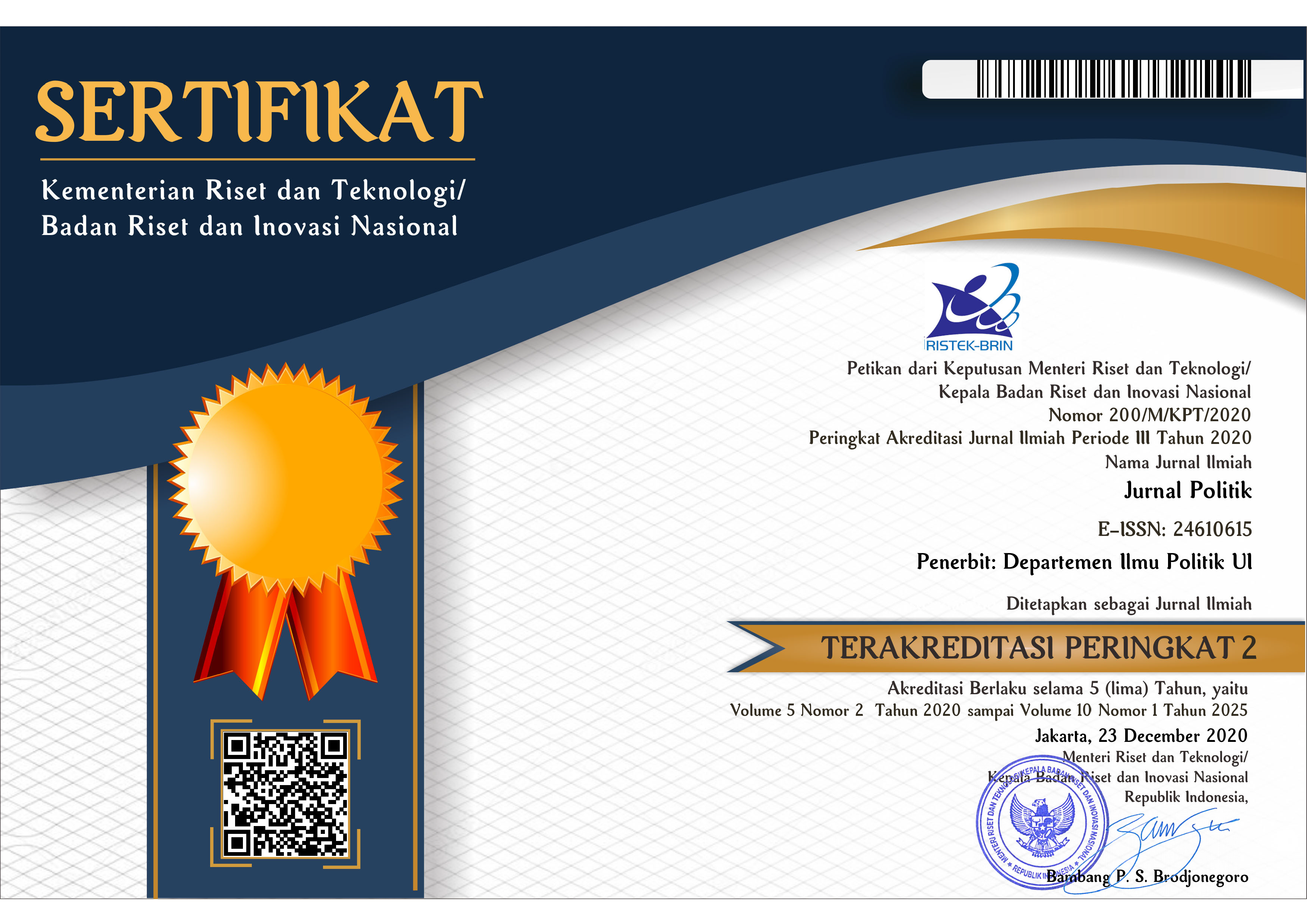Abstract
To respond the Asian financial crisis in 1997-1999, the governments of Indonesia and Malaysia took different measures to their macroeconomic policies. The government of Indonesia tightened their fiscal and monetary policies, discontinued their intervention in foreign exchange market, and liberalized various sectors of economics while the government of Malaysia adopted expansive monetary and fiscal policies, continued their intervention in foreign exchange market, and controlled capital flows. Why was the same crisis responded by different macroeconomic policies? Why did the crisis lead to liberalized macroeconomic policies change in Indonesia, but the same thing did not happen in Malaysia? Previous studies have avoided the ideational factor to explain the governments’ preferences on macroeconomic policies. This article argues that econo mic paradigms adopted by the government regimes before the crisis determined the macroeconomic policies to respond the financial crisis in 1997-1999. The emergence of financial crisis led to an alteration of macroeconomic policies because (i) the crisis falsified the expectation of paradigms adopted by governments before the crisis and (ii) the ‘carriers’ of alternative paradigm could get into the governments institution to delegitimize old paradigm, then institutionalize the new paradigm. These two factors occured in Indonesia, but not in Malaysia.
Recommended Citation
Bahri, Syamsul
(2017)
"Perubahan dan Kesinambungan Kebijakan-Kebijakan Ekonomi Makro: Kasus Indonesia dan Malaysia Tahun 1997-1999,"
Jurnal Politik: Vol. 2:
Iss.
2, Article 3.
DOI: 10.7454/jp.v2i2.1116
Available at:
https://scholarhub.ui.ac.id/politik/vol2/iss2/3
Included in
American Politics Commons, Comparative Politics Commons, Geography Commons, International and Area Studies Commons, International Relations Commons, Political Theory Commons


